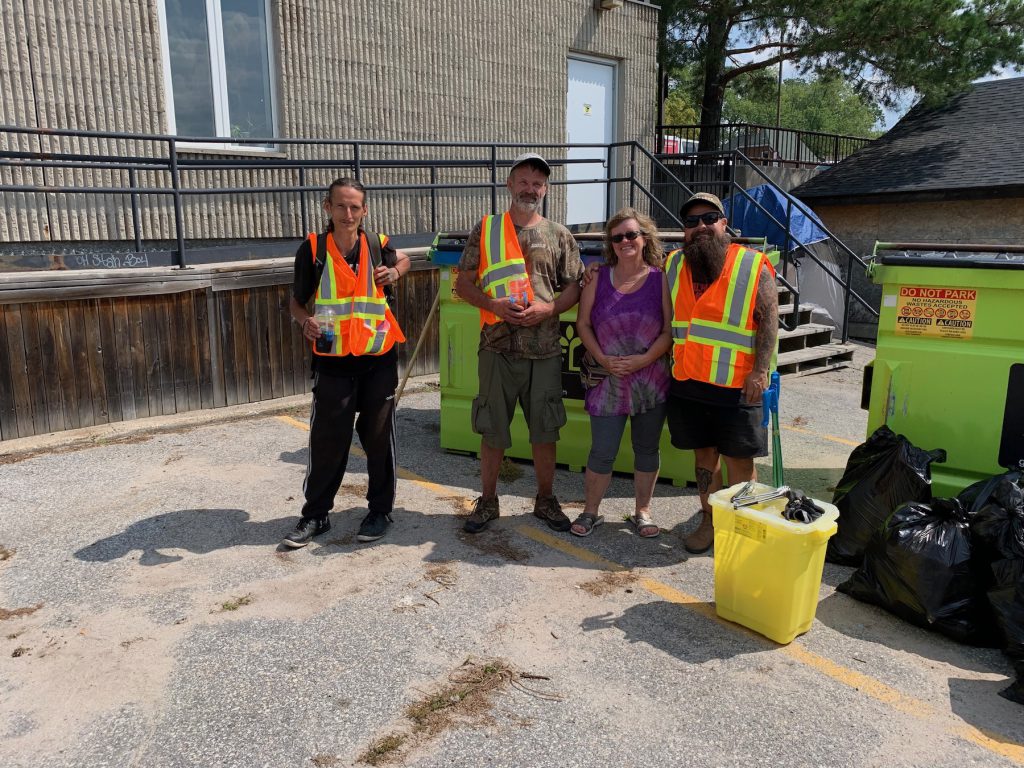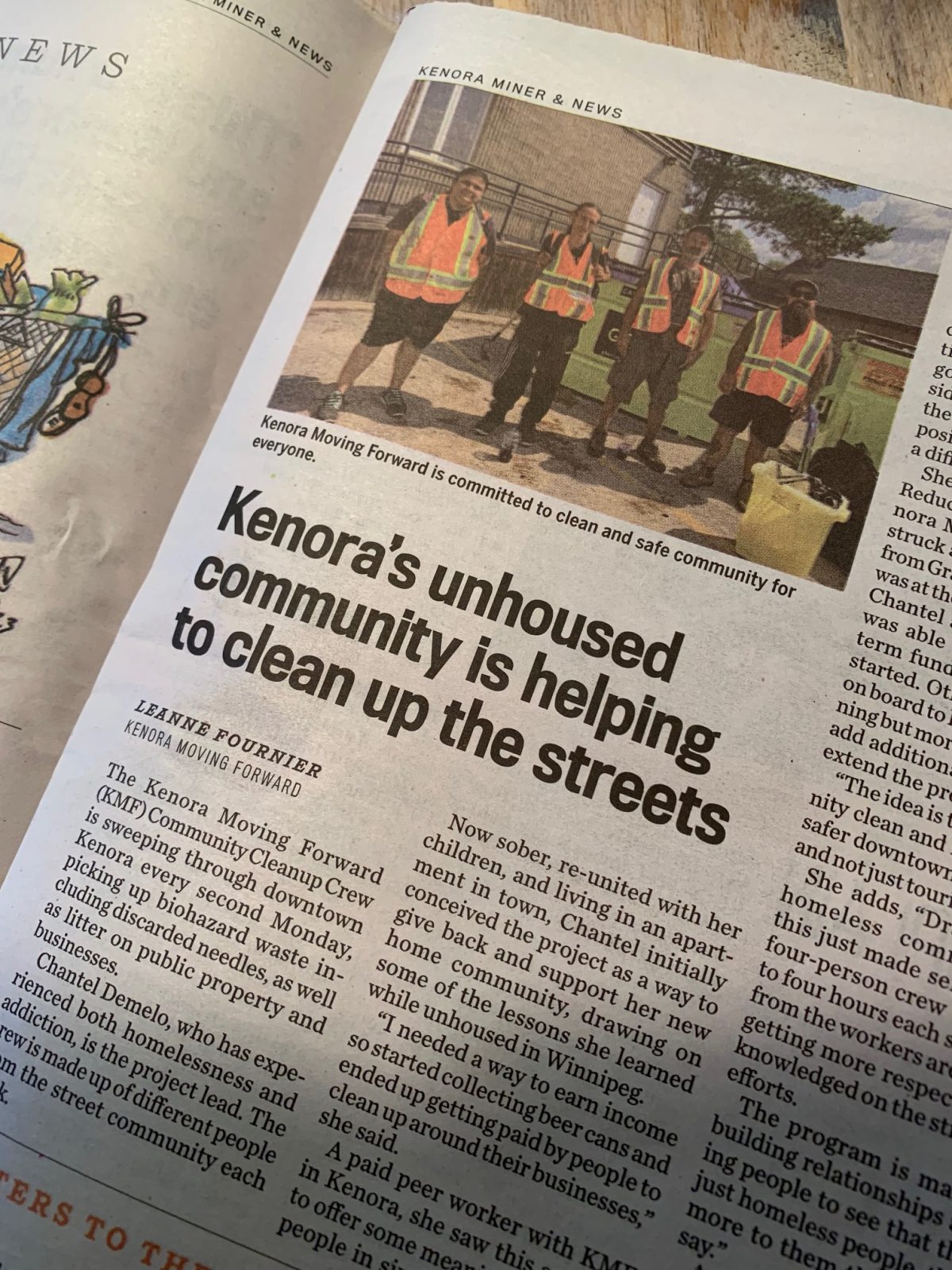I recently watched an amazing Ted Talk featuring Karen Eber on the topic of “How your brain responds to stories — and why they’re crucial for leaders.” Much of what she said got me in the gut but this really stood out.
Stories “demonstrate what you value and encourage…or what you don’t value and discourage.”
Karen Eber, top TED speaker
I’ve been doing a fair bit of writing on social justice over the past few months (hence fewer blog posts) and Karen’s words throughout her talk really help validate that work. I’ve often talked about the power of stories that focus on our humanity, what we bring to the world, what we care about, and how it’s what really matters.
“Data doesn’t change our behaviour. Emotions do.“
Karen Eber
Following is an article I wrote recently for the Kenora Miner and News that ran the week of August 24. I think it captures some of what Karen talks about.
I’m proud to have the opportunity to walk alongside and truly “see” some of these amazing people in our community who always give whatever they have – even if they have almost nothing.
The unhoused people I have met have taught me more about home and community than anything else in my life.
Kenora’s unhoused community is helping to clean up the streets
By Leanne Fournier
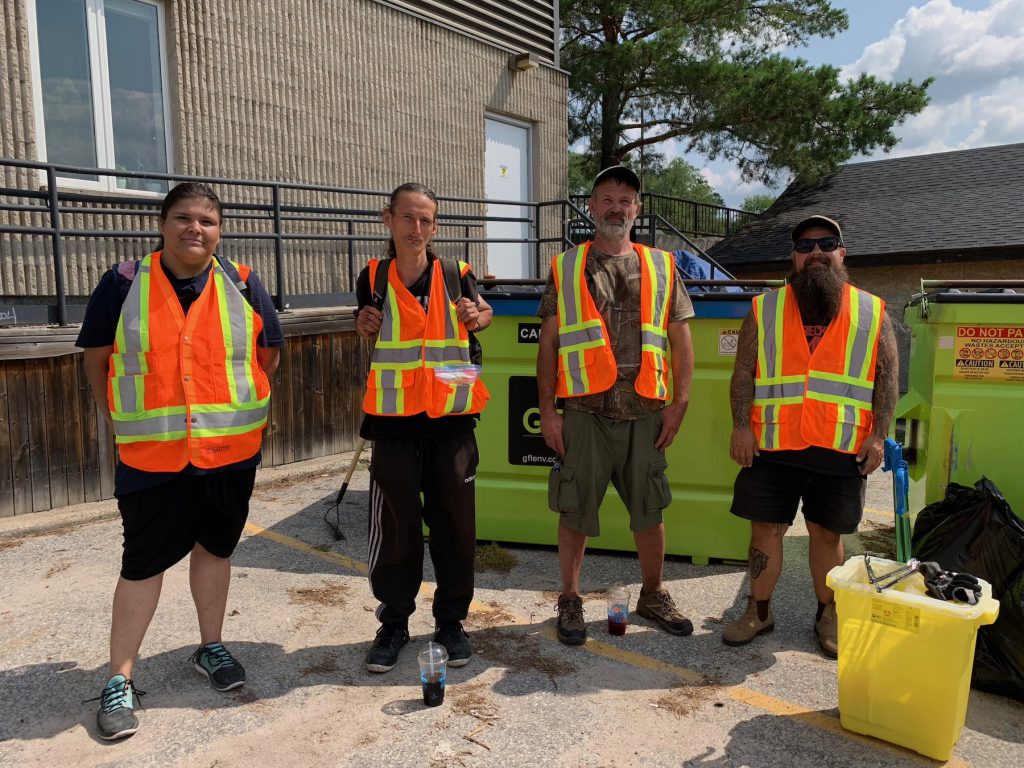
The Kenora Moving Forward (KMF) Community Cleanup Crew is sweeping through downtown Kenora every 2nd Monday, picking up biohazard waste including discarded needles, as well as litter on public property and businesses.
Chantel Demelo, who has experienced both homelessness and addiction, is the project lead. The crew is made up of different people from the street community each week.
Now sober, re-united with her children, and living in an apartment in town, Chantel initially conceived the project as a way to give back and support her new home community, drawing on some of the lessons she learned while unhoused in Winnipeg.
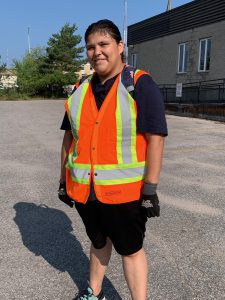
“I needed a way to earn income so started collecting beer cans and ended up getting paid by people to clean up around their businesses,” she said.
A paid peer worker with KMF in Kenora, she saw this as a way to offer some meaningful work to people in similar circumstances and to help address a community concern. “I started seeing the solution to the town’s concerns and got tired of watching it from the sidelines. I figured if I start from the bottom to create something for positive change, I could help foster a different perspective.”
She brought the idea to a Harm Reduction Meeting, hosted by Kenora Moving Forward. Grand Council Treaty #3 provided some funding to get the project started. Other donors have come on board to keep the program running but more funding is needed to add additional cleanup dates and extend the program into the fall.
“The idea is to keep the community clean and for families to feel safer downtown. It’s for residents and not just tourists,” said Chantel.
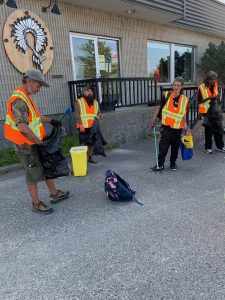
She adds, “Drawing from the homeless community to do this just made sense. We have a four-person crew working three to four hours each shift.” Reviews from the workers are that they are getting more respect and are acknowledged on the street for their efforts.
“The program is mainly about building relationships and allowing people to see that they aren’t just homeless people, that there’s more to them than what people say,” said Chantel.
An added bonus is that Chantel can be a reference for some of the workers for other employment opportunities.
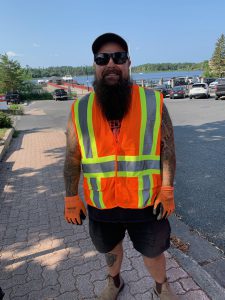
The crew out on Monday after the long weekend collected an enormous amount of litter and all of the trash bins in town were overflowing. Laine Hughes, who is the lead for KMF’s Debwewin (Truth) project joined the crew. He said, “So much of what we’re cleaning up is actually the waste associated with tourist season. On a day like today after a big event, there’s a lot more litter than we normally see.”
The future of the program is unsure, but Chantel is looking to expand into additional activities like lawn mowing, weeding gardens and more but again it’s dependent on available funds to pay the workers.
Of Monday’s crew, two had slept at the overnight shelter and one in a tent.
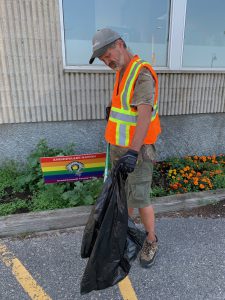
Robert is a war veteran who has served in Kuwait, Iraq and Afghanistan. Suffering from PTSD, he turned to drugs but has now been clean for over a year. He has been on the housing wait list for over two and a half years. As a gold seal chef, he is having trouble finding meaningful work and is thinking about going back to school to take addictions counselling. When asked what contribution he’d like to make to the community he said, “Help make it clean for everybody – children, parents, even the animals.” He finds street life alarming. “There’s quite a racism problem in this town,” he said.
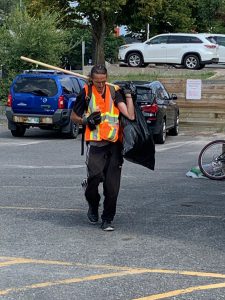
James, another helper, has been unhoused for about six months since being incarcerated. He sees the cleanup crew and the chance to get paid as “a bonus”, since it’s something he does anyway. “I love the community, the scenery, the people – everything. This just shows respect.” He comments that many who are living on the street are in a rough spot. “It’s not easy. Caring is the key word.”
Corey who is a regular KMF peer worker also joined Monday’s crew. Corey has been living on Kenora’s streets for a long time, first coming here to join his “baby brother”, who has since passed away. He sees the cleanup as “important to do for tourism and for the kids.” He cares about children, has three of his own who are all grown and in post-secondary education. Corey says he doesn’t mind living on the streets. “Except in the winter,” he said. “The hardest part is the cold.”
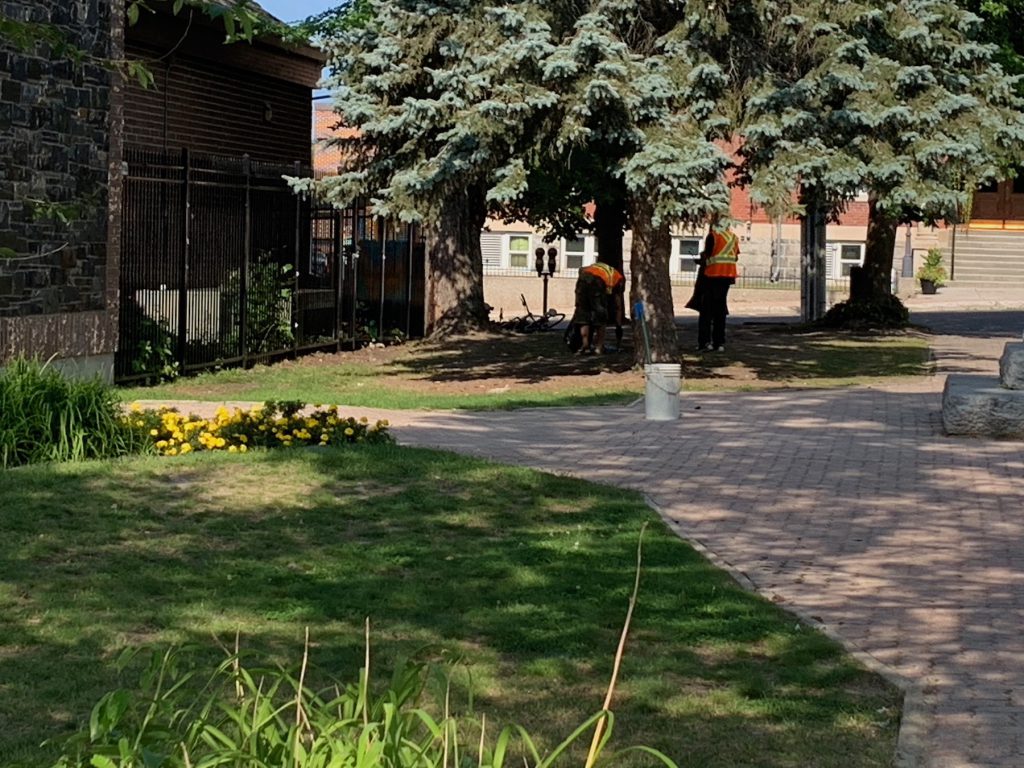
“It feels really good to have the crew out today,” said Chantel. “It’s very important to build these healthy relationships with the street people and businesses.”
Laine agrees. “People we talk to on the street are really appreciative of what we’re doing.” He has been inspired by how much community there is amongst those living rough on Kenora’s streets.
“They take care of one another. People are clearly dealing with their own hardships, but they always have a word for someone who seems to be having a harder time…always have something to give to someone who has less even if they barely have anything themselves.”
KMF is setting up a website with information about how people can support the project. In the meantime, emails for donations, support, or to request for the Cleanup Crew drop by your business, can be sent to kenoramovingforward@gmail.com.
